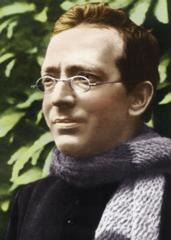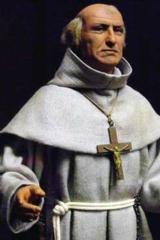Evangelization: Pastors of The Church

The November Apostleship of Prayer Evangelization intention is about the Pastors of the Church: "That Pastors of the Church, with profound love for their flocks, may accompany them and enliven their hope."
What a wonderful definition of a pastor, one who loves each member of the flock, accompanies each one, giving each a hopeful life! Himalayan shepherds do just that. Jesus did the same for his disciples, who in turn carried the Good News to the world they knew. The Church continued this mission, moving out as Europeans discovered new lands and peoples. 
This ministry took various forms. Paul and Xavier kept on the move, forming communities which could then grow on their own. Matteo Ricci, Roberto de Nobili, and John de Britto learned all they could of the languages and cultures they found, and proclaimed the Good News in ways these people could understand and accept.
Others tried to help their flocks through economic development: Junipero Serra in California, the Jesuit Reductions in South America, the Jesuit mission in Huronia, and Constant Lievens on India’s Chotanagpur Plateau.
None of these endeavors was perfect.  Some ended abruptly with martyrdom. Others were condescending to their flocks. Foreigners brought debilitating diseases to the people they were trying to help. Conquest drove these people off their land.
Some ended abruptly with martyrdom. Others were condescending to their flocks. Foreigners brought debilitating diseases to the people they were trying to help. Conquest drove these people off their land.
Yet these women and men were certainly pastors, bringing hope-filled love to their people. Jeffrey M. Burns says that Serra and his fellow missionaries measured success in terms of souls saved. “Serra offered the native people membership in the missions in exchange for eternal life. He would have seen everything at the mission as the native people’s property, something he was holding in trust for them. It may not have worked out that way, but that’s how he understood it.” (1)
We pray this month for Pastors, whose duties the Code of Canon Law outlines in numbers 528-530:
-To announce the word of God in its entirety, teaching the truths of the faith, especially through the homily.
-To foster works by which the spirit of the gospel is promoted.
-To care for the Catholic education of children and young adults.
-To bring the gospel message to those who have ceased practicing their religion or who do not profess the faith.
-To see that the Eucharistic liturgy is the center of the parish assembly.
-To celebrate the sacraments and to encourage family prayer.
-To get to know and encourage the parish members.
-To seek out the poor, the afflicted, the lonely, exiles, and those with special difficulties.
-To foster the growth of Christian life within families.
-To encourage lay members to serve the parish community.
No pastor can meet the above demands fully. Each of us, because of our baptism shares in Jesus’ challenge to bring faith to our world through loving service. Most of us are members of a parish, and so share in the pastor’s ministry. Perhaps this month we can run down the list above and ask ourselves: “How can I involve myself in this aspect of parish life?” Pope Francis has offered us several challenges. Religious are busy reflecting on our lives of consecration to God and God’s people through our vows. Family members are renewing their commitments to their wives, husbands, children and parents.  We are about to begin the Jubilee of Mercy, praying with Pope Francis that the Church “. . . never tire of extending mercy, and be ever patient in offering compassion and comfort.” (2)
We are about to begin the Jubilee of Mercy, praying with Pope Francis that the Church “. . . never tire of extending mercy, and be ever patient in offering compassion and comfort.” (2)
Fr. Michael Amaladoss, S.J., speaks of a secular spirituality.(3) The Spirit of God created the universe (Gen.1:1-3), and has sent God to the world in the Incarnation (Lk.1:35). We have become heirs of God with Christ (Rom.8:15-17). We, the secular, bring the sacred to ourselves and others through the gift of loving service (Jn.15:12). The sacred, joins the secular through the Eucharist (cf. I Cor.12:12-13; Eph.4:1-16).
Fr. Amaldoss concludes: “Because the sacred has become the secular, it has a secular conscience, because it is in the needy other who makes me go out of myself that I discover the sacred.” (4)
+++++++++++++++++++++++++++++++++++++++
1. Junipero Serra.
2. Pope Francis, Bull of Indiction of the Extraordinry Jubilee of Mercy, Rome, 11 April 2015;
3. Michael Amaladoss, S.J., “A Secular Spirituality, The Christian Tradition” (Ignis No.2015.3, Vol.XLV No. III), pp.49-56.
4. ibid p.56.




No Comments